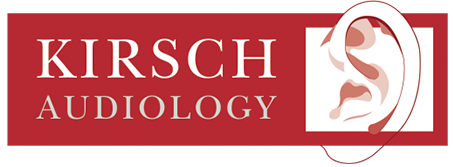The primary objective for all currently-available tinnitus treatment options is to lower the perceived burden of tinnitus, allowing you to live a more comfortable, unencumbered, and content life.
Is there a “cure” to tinnitus?
There is currently no scientifically proven cure for most cases of chronic tinnitus — in particular the vast majority of cases caused by sensorineural hearing loss. The search for a definitive cure is ongoing and real progress is being made, but there is currently no clinically proven way to fully eliminate the perception of tinnitus.
There are, however, excellent tools to help patients manage their condition; treatments that reduce the perceived intensity, omnipresence, and burden of tinnitus.
What treatment options are available?
These currently available treatments are not “cures” — they neither repair the underlying causes of tinnitus, nor eliminate the tinnitus signal in the brain. Instead, they address the attentional, emotional, and cognitive impact of tinnitus. They help patients live better, more fulfilling, and more productive lives, even if the perception of tinnitus remains.
Some patients question the value of treatments that fall short of an absolute cure. We believe patients should do everything possible to lessen the burden of tinnitus until a definitive cure is found. An appropriate analogy may be the use of ibuprofen for a headache. Ibuprofen itself does not cure the underlying cause of most headaches, but it does reduce the pain that makes headaches feel so awful. Likewise, the most effective tinnitus treatment tools address the aspects of tinnitus that so often make the condition feel burdensome: anxiety, stress, social isolation, sound sensitivity, hearing difficulties, and perceived volume.
What is my best option?
No two patients and no two tinnitus cases are alike. As such, the “best” treatment option is often contingent on an array of factors unique to each patient. Moreover, successful management of tinnitus may require overlapping layers of treatment.
Below is a list of currently available treatment options, organized into general categories.
General Wellness
The perceived intensity of tinnitus can fluctuate depending on many factors, including the patient’s overall well-being. There are simple (and often free!) things patients can do that may alleviate some of the burden.
Hearing Aids
Tinnitus is overwhelmingly connected to some level of hearing loss. Augmenting the reception and perception of external noise can often provide relief from the internal sound of tinnitus.
Sound Therapies
Tinnitus is a non-auditory internal sound. But patients can use real external noise to counteract their perception and reaction to tinnitus. Sound masking can cover the sound of tinnitus, while more advanced therapies may provide more robust relief.
Behavioral Therapies
Tinnitus can generate strong, negative emotions like anxiety, depression, and anger. Patients can learn to control their emotional reactions and thereby disassociate tinnitus from painful negative behavioral responses.
Drug Therapies
There are currently no FDA-approved drugs specifically for tinnitus. However, there are pharmacological options to address the stress, anxiety, and depression that are caused by (and can sometimes exacerbate) tinnitus.
TMJ Treatments
In some cases, tinnitus is caused by physiological functions or disorders within the body. In these less-common situations, addressing the baseline physical cause may eliminate or drastically reduce tinnitus symptoms.
Experimental Therapies
The search for new tinnitus treatments and potential cures in ongoing. Here are some of the cutting-edge therapies currently in development, but which have not yet been fully validated for effective clinical use.
